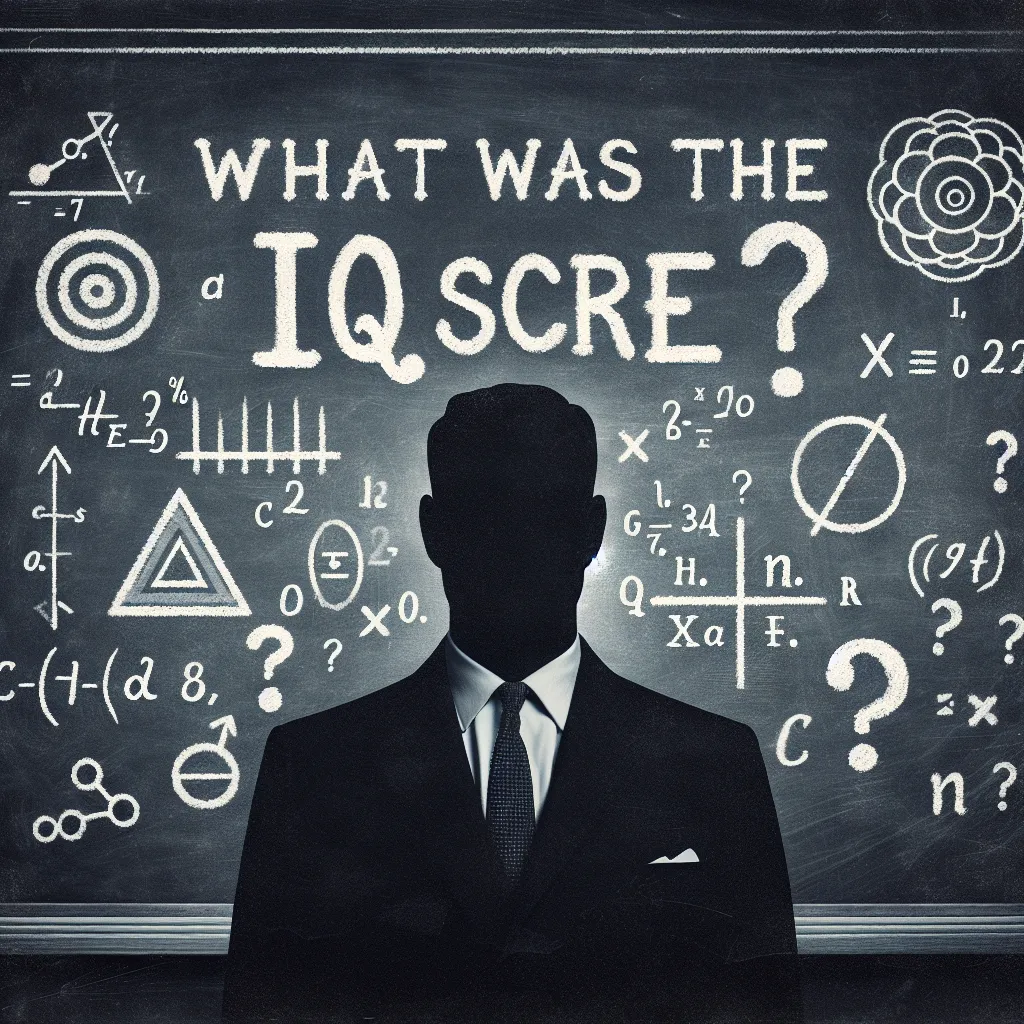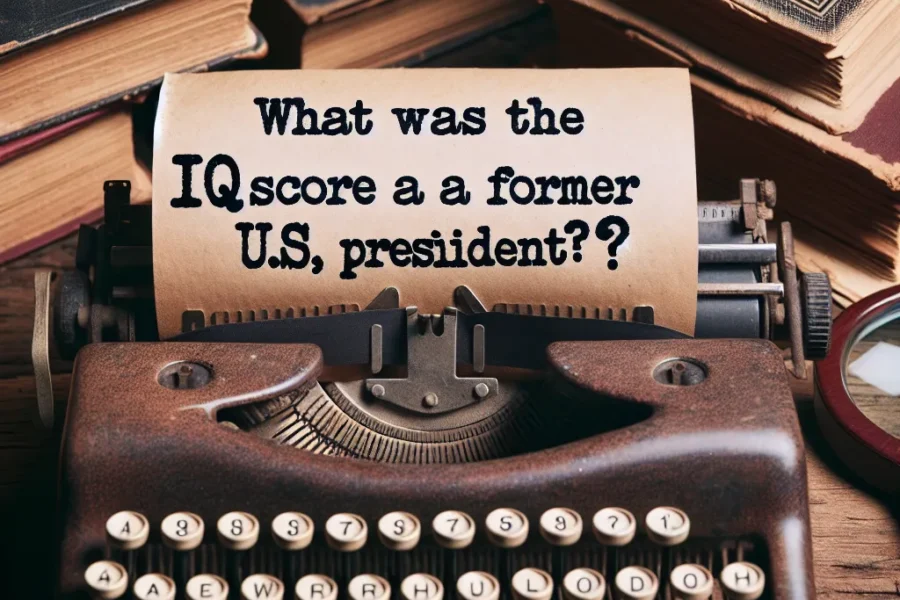Richard Nixon is a name synonymous with political intrigue, controversy, and an enduring impact on American governance. His life has been scrutinized from every conceivable angle, including his intellectual capabilities. Quite often people wonder: what was Richard Nixon’s IQ score?
If you are looking for legitimate IQ Tests which pass the entry bar for Mensa, see our IQ Tests.
Understanding Richard Nixon’s IQ requires a robust examination of what IQ tests measure, how they were administered during his time, and the context within which Nixon operated. IQ, or Intelligence Quotient, is a measure of a person’s intellectual abilities relative to others. It factors in various cognitive skills including problem-solving, logical reasoning, and understanding complex ideas. Nixon, with his strategic mind, often demonstrated these skills.
While it’s widely believed that Nixon’s IQ was around 143, it’s crucial to understand how this figure was derived. Richard Nixon was born in 1913, a time when the Stanford-Binet intelligence test was becoming a prominent tool for gauging cognitive abilities. The method for measuring IQ has evolved significantly since then. Originally, IQ scores were calculated by dividing an individual’s mental age by their chronological age and then multiplying by 100. Nixon, who excelled academically from a young age, would have likely scored high by these standards. We have proof of this with the Otis Gamma. He scored an equivalent of 154 when the score is converted to SD15.
But let’s delve into the man behind the numbers. Richard Milhous Nixon was born in Yorba Linda, California, into a family of modest means. His early life was riddled with hardships. Despite these challenges, he excelled in school, showing a remarkable acumen for debate and law. Nixon attended Whittier College, a small Quaker institution, where he further honed his debating skills and aspirations for public service. Later, he earned a full scholarship to Duke University School of Law, a testament to his intellectual prowess.
IQ scores, while useful, don’t wholly encapsulate an individual’s abilities, life experiences, or moral compass. For Nixon, his strategic mind was evident not just in political maneuvering but also in his keen understanding of international affairs. This intellectual capability played a significant role during his terms as Vice President under Dwight D. Eisenhower, Senator from California, and eventually, as the 37th President of the United States.
One of Nixon’s notable achievements, which underscores his intellectual capabilities, was his foreign policy accomplishments, particularly his landmark visit to China. This trip, often lauded as one of the most significant diplomatic breakthroughs of the 20th century, demonstrated Nixon’s ability to see beyond the entrenched Cold War ideologies. He envisioned a geopolitical landscape where the United States could reshape global alliances to its benefit, thus thawing relations with a nation that had been largely isolated for decades. This maneuver showcased his capacity for long-term strategic planning.
However, the context within which Nixon’s IQ is often discussed can’t be divorced from the scandal that defined much of his presidency—Watergate. Nixon’s involvement in the cover-up of this break-in at the Democratic National Committee headquarters ultimately led to his resignation. This scandal brought to light an often-overlooked aspect of high intelligence: it does not inherently equate to ethical behavior. Nixon’s sharp intellect was, in part, what led him to believe he could navigate and survive the political fallout of the scandal.
Delving further into Nixon’s mental capabilities, one can examine his written works and speeches, many of which provide a window into his intellectual landscape. Nixon was a prolific writer, authoring several books post-presidency. These works, which range from memoirs to treatises on policy and international relations, reflect his deep analytical skills and his ability to synthesize complex information.
Notably, his book “RN: The Memoirs of Richard Nixon” offers insights into his worldview and decision-making processes. This autobiographical work, dense with details and reflections, underscores his ability to recall and analyze vast swaths of information, further underscoring the intellectual capabilities typically associated with a high IQ.
It’s important to contextualize IQ scores within broader historical and social frameworks. During Nixon’s era, the focus on high-level strategic thinking in governance was of paramount importance. The ability to navigate the Cold War’s treacherous waters required not just intelligence but a particular kind of savvy, an aptitude for realpolitik that Nixon exemplified. His tenure saw significant arms control agreements like the Strategic Arms Limitation Talks (SALT) with the Soviet Union, further demonstrating his ability to engage in high-stakes negotiation.
Yet, Nixon’s intelligence and political acumen also had a darker side. His infamous “Enemies List” and the use of governmental agencies to harass perceived political adversaries show how a high IQ, when combined with paranoia and a penchant for secrecy, can lead to the abuse of power. This duality—being both astutely intelligent and deeply flawed—paints a complex picture of Nixon’s legacy.
Moreover, Nixon’s speeches and interviews offered additional layers of complexity to his character. His debates and formal addresses often revealed a man who was exceptionally well-prepared, articulate, and capable of conveying complex ideas with clarity and conviction. His famous “Checkers” speech, which addressed allegations of impropriety, is a prime example of how Nixon used his intellectual abilities to appeal to the American public’s emotions and sense of fairness.
Nixon was also an avid reader, with a particular interest in historical works and biographies. His voracious reading habits likely contributed to his expansive vocabulary and rich understanding of history and politics, hallmarks of someone with a high IQ. Books enabled him to draw parallels between past and present political dilemmas, informing his policy decisions with historical context.
Despite his intellectual gifts, Nixon’s personal traits, such as his renowned work ethic and tenacity, also played crucial roles in his accomplishments. Years of rigorous academic training, combined with an almost obsessive drive to succeed, propelled him forward. This blend of high IQ, relentless drive, and deep political savvy facilitated his rise to the presidency and his notable, albeit contentious, tenure.
In examining Nixon’s life through the lens of IQ, one must consider the multifaceted nature of intelligence. Cognitive abilities, while significant, are but one piece of the puzzle. Nixon’s life and career were influenced by a complex interplay of intelligence, ethical considerations, emotional responses, and social environments.
To conclude, Richard Nixon’s IQ, reportedly around 143, is but a numerical representation of a profoundly complex individual. His intellectual capabilities were evident in his political strategies, diplomatic endeavors, and written achievements. However, his life story also serves as a reminder that intelligence, particularly as measured by an IQ score, is not a definitive predictor of moral rectitude or ethical behavior. Nixon’s legacy, bound by both his formidable intellect and his significant flaws, remains a compelling study of the dual nature of human capability.
If you find the subject of IQ intriguing and want to explore it further, there are numerous legitimate IQ Tests which pass the entry bar for Mensa. For more information, see our IQ Tests.
In understanding figures like Richard Nixon, one must look beyond mere numbers to appreciate the full scope of their abilities and the complex interplay of traits that define their legacy. Nixon’s IQ score is but a starting point in understanding the strategic mind and contentious personality that shaped one of America’s most enigmatic presidencies.



Leave a Comment